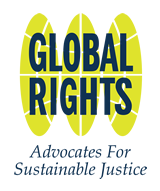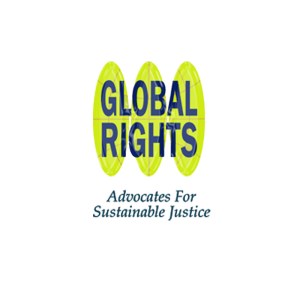About us
Job Description
This is a remote position.
TERMS OF REFERENCE
DEVELOPING POLICY BRIEF ON HUMAN RIGHTS AND ENVIRONMENTAL DUE DILIGENCE (HREDD).
Background:
The United Nations’ Guiding Principles on Business and Human Rights (UNGP) represents a global framework that outlines the responsibility of businesses to respect human rights. Central to this framework is the concept of Mandatory Human Rights and Environmental Due Diligence (HREDD), which emphasizes that businesses must proactively assess and address the potential impacts of their operations on human rights, including those of their host communities, workers, and the environment.
In Nigeria, the implementation of HREDD remains a significant challenge, leading to widespread human rights abuses and environmental degradation in communities affected by business activities. Despite the adoption of a National Action Plan on Business and Human Rights (NAP-BHR), there exists a notable gap between policy intentions and on-the-ground realities. Business host communities often experience a range of adverse effects from corporate operations, including air and water pollution, inadequate safety standards, labor rights violations, land expropriation, gender discrimination, and security breaches.
Several factors contribute to the apparent lack of oversight and accountability for these violations. Firstly, many businesses operating in Nigeria have failed to prioritize human rights due diligence principles, neglecting to establish clear policies and procedures to protect the rights of affected stakeholders. This includes inadequate assessments of potential risks, insufficient training of employees on human rights and environmental issues, irregular monitoring of compliance, and a lack of effective mechanisms for addressing grievances and remedying harms. Secondly, affected communities often lack awareness of their rights and the obligations of both businesses and the state in safeguarding their rights, further exacerbating their vulnerability to exploitation and abuse. Lastly, government agencies responsible for overseeing business-related human rights issues often lack the capacity, resources, and political will to effectively enforce existing regulations and hold non-compliant businesses accountable.
The consequences of these shortcomings are severe, with communities bearing the brunt of the social, economic, and environmental costs of irresponsible business practices. Human rights abuses, environmental degradation, and social conflicts undermine sustainable development efforts and perpetuate cycles of poverty and inequality.
Recognizing the urgent need to address these challenges, our intervention seeks to bridge the knowledge gap among stakeholders including government agencies, businesses, civil society organizations, and affected communities as a means of fostering collaborative efforts toward promoting socially responsible and sustainable business practices that prioritize the protection of human rights and the environment.
Objectives:
- Examine the compliance of businesses to human rights and environmental due diligence in Nigeria.
- Develop a roadmap and stimulate action towards achieving compliance with human rights and environmental due diligence.
Scope of Work:
Working with the Global Rights Executive Director and Program Manager, the consultant will be expected to carry out the following tasks:
●Conduct desk research and Key Informant Interviews (KII) to assess business compliance with Human Rights and Environmental Due Diligence.
●Produce a Policy Brief on the assessment of business compliance with Human Rights and Environmental Due Diligence in Nigeria. This will include identifying policy options for addressing the gap in business compliance with Human Rights and Environmental Due Diligence in Nigeria while also recommending best practices for promoting the effective implementation of human rights due diligence processes.
Deliverables:
The consultancy will deliver the following outputs:
●Produce a policy brief on Human Rights And Environmental Due Diligence (HREDD).
●Do a presentation of the Policy brief during a consultation meeting with the organized business sector, media, and key policymakers to be organized by Global Rights to proffer a roadmap towards enhanced human rights and environmental due diligence in Nigeria.
●
Timeline: The consultancy will be conducted over 3 weeks.
Intellectual Property Rights:
All intellectual property rights arising from the consultancy will be the property of Global Rights. The consultant will not disclose or use any confidential information obtained during the consultancy for any other purpose without the written consent of Global Rights.
Confidentiality and Ethical Considerations:
The consultant will ensure that all data collected during the consultancy is treated with the utmost confidentiality and in accordance with ethical principles. In particular, the team will obtain informed consent from all participants before collecting any data and will ensure that data is stored securely and only accessible to authorized personnel. The consultant will also comply with any relevant legal and ethical standards and will report any ethical concerns or violations to Global Rights immediately.
The consultant will report to the Executive Director and Program Manager.
Requirements
- A minimum of 5 years of experience in peace and security research.
- Master’s degree in Political Science/International Relations/Law/Public Administration/Public Policy is an added advantage.
- An understanding of the Nigerian security sector.
- Excellent writing skills, with the ability to produce clear, concise, and engaging reports.
- Fluency in English.
- An understanding of the requirements
- Methodology and work plan for performing the assignment
- Project delivery plans
- Budget
- Relevant services undertaken in the past with a detailed reference list indicating the scope of similar assignments
- Registration and other relevant statutory documents








 April 18, 2024
April 18, 2024  Remote
Remote  Consultant
Consultant 